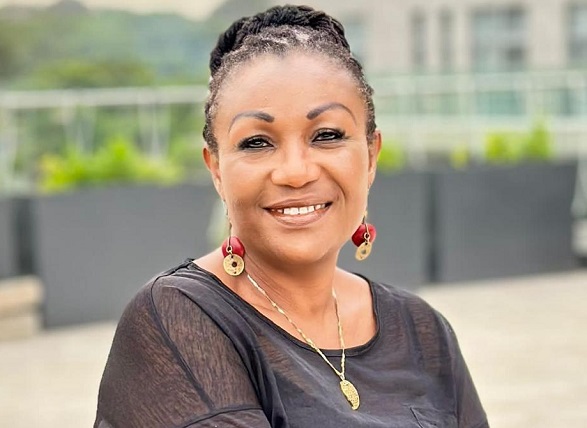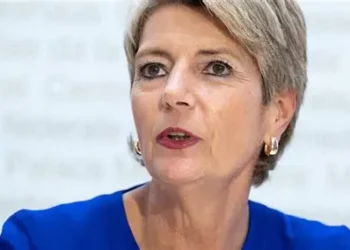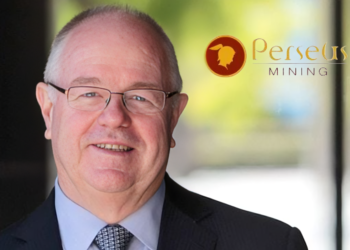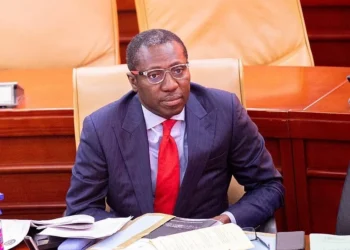Ghana aims to achieve a low-carbon economy by 2070, but experts warn of contradictions, funding gaps, and the need for inclusive, coordinated planning to ensure a just energy transition.
During a recent multi-stakeholder dialogue, Nafi Chinery, Africa Director at the Natural Resource Governance Institute (NRGI), called for urgent and inclusive planning to steer Ghana’s energy transition.
“If the buyers of our fossil fuel products are moving away, we also need to have a plan.
“We must not be caught unprepared. Scenario planning and economic forecasting are essential to protect the gains we’ve made.”
Nafi Chinery, Africa Director at the Natural Resource Governance Institute (NRGI)
Chinery’s comments reflect growing concerns among civil society organizations (CSOs) and policy experts over Ghana’s dual track energy strategy.
On one hand, the country has publicly committed to achieving net-zero emissions and transitioning away from fossil fuels. On the other hand, it continues to invest heavily in its petroleum sector, with plans to bolster the Ghana National Petroleum Corporation (GNPC).
“This contradiction between our stated climate commitments and our economic actions needs to be addressed.
“While fossil fuels currently contribute only about 7% to national revenue, they fund critical sectors like education, agriculture, and healthcare.”
Nafi Chinery, Africa Director at the Natural Resource Governance Institute (NRGI)

At COP27 in Sharm El-Sheikh, Egypt, Ghana unveiled an ambitious Energy Transition Investment Plan, which originally sought more than $600 million in initial funding.
Following pushback from civil society organisations (CSOs) over lack of consultation and insufficient consideration for social impacts, the plan was revised.
The latest iteration now targets $550 billion in investment by 2070 with the aim of achieving net-zero carbon emissions.
Despite this progress, Chinery raised concerns that the plan still falls short in terms of inclusivity and transparency, particularly for vulnerable groups such as young people, persons with disabilities, and frontline workers in the fossil fuel value chain who face job displacement.
“These workers need retraining and reskilling support. Youth groups and women must be at the table, not just in rhetoric but in actual decision-making.”
Nafi Chinery, Africa Director at the Natural Resource Governance Institute (NRGI)
Urgency for Domestic Funding Solutions

Chinery also touched on the broader geopolitical and economic factors affecting Africa’s energy future. She noted that international donor funding—once a reliable source for financing development and climate initiatives—is drying up.
“Donor funding is shrinking. We’re seeing less support from the U.S. and Europe as they focus on their domestic economic challenges.
“This means Africa must take the reins and align its mineral and energy sectors in a strategic, forward-looking way.”
Nafi Chinery, Africa Director at the Natural Resource Governance Institute (NRGI)
She pointed out that Ghana is not alone in its struggle to balance economic development with sustainability.
Across the continent, countries are grappling with how to transition away from fossil fuels without undermining economic growth or social stability.

The dialogue served as a platform for various stakeholders, including policymakers, CSOs, industry players, and academia, to evaluate Ghana’s preparedness for a green energy future.
Many participants echoed Chinery’s call for a unified approach to the energy transition, with stronger coordination between ministries, clarity in policy directives, and public-private collaboration.
“We need to know where we are, who is doing what, what more needs to be done, and most critically, how we’ll raise the money to finance Africa’s energy transition.”
Nafi Chinery, Africa Director at the Natural Resource Governance Institute (NRGI)
Ghana’s energy transition represents a monumental opportunity to redefine its development pathway.
Yet, as Nafi Chinery and other stakeholders have highlighted, this requires much more than ambition—it demands actionable policies, inclusive planning, and a realistic understanding of global and domestic financial dynamics.
Balancing environmental goals with socio-economic needs will be key to ensuring that Ghana’s low-carbon future is both equitable and achievable.



















